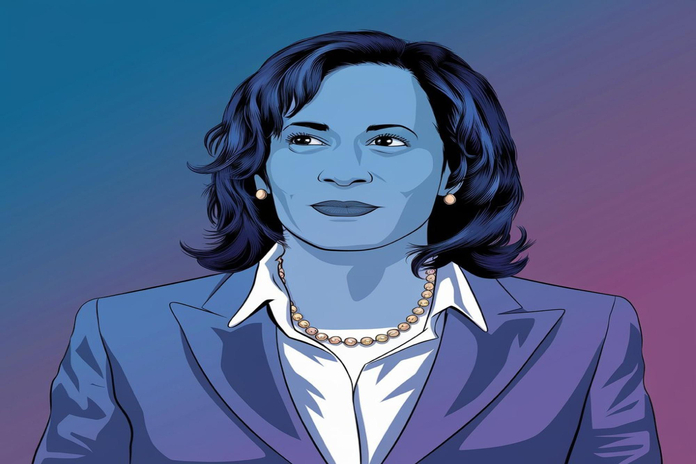In the aftermath of the 2024 election, the cryptocurrency industry has firmly established itself as a key player in American politics. With Republicans currently controlling the presidency and the Senate, cryptocurrency political action committees (PACs) have successfully backed candidates who support cryptocurrency regulatory reform. The election results show notable gaps in the Democratic Party’s approach to cryptocurrency regulation, highlighting a missed opportunity for Democrats to gain the upper hand in governing the rapidly expanding blockchain and digital asset sector. do.
Demand for regulatory clarity in cryptocurrencies
For years, cryptocurrency industry leaders have been pushing for clear and fair regulation. Although industry insiders have engaged in bipartisan debate and encouraged transparency, many Democratic leaders have dismissed digital assets as risky and linked them to fraud or criminal activity. This resistance has hindered efforts to create a balanced cryptocurrency regulatory framework that would foster innovation and protect consumers.
Cryptocurrency advocates had hoped that Democrats would consider the broader economic benefits of blockchain, but their position instead leaves a policy gap. This gap has allowed conservative-backed candidates, especially those aligned with the cryptocurrency advocacy movement, to emerge as champions of cryptocurrency innovation and promise a more friendly regulatory environment.
Cryptocurrency’s Transition to GOP
After being blocked by Democrats, cryptocurrency leaders found support from MAGA-supporting Republican candidates who support a more hands-off approach to financial regulation. With a Republican-controlled Congress, the industry is now in a position to push for reforms like FIT21, a proposed policy that would shift cryptocurrency oversight from the Securities and Exchange Commission (SEC) to the Commodity Futures Trading Commission (CFTC). This change will weaken the SEC’s tight control over digital assets, a move many cryptocurrency companies believe will help the industry thrive.
But while a Republican-led administration may favor deregulation, there are potential downsides. Republicans’ Project 2025, a conservative blueprint that promotes consolidation of executive branch power, could have unintended impacts on individual rights. As Trump and his supporters pursue a strong deregulation agenda, financial freedom for cryptocurrencies may expand, but other freedoms may be sacrificed.
Impact on underserved communities
One of the most important concerns about Democrats’ missed opportunities in cryptocurrency regulation is the impact on marginalized communities, particularly Black Americans. For many Black investors, cryptocurrency has become a gateway to financial independence, allowing them to bypass traditional financial barriers. Research shows that approximately 23% of black Americans own cryptocurrency, a higher percentage than any other demographic group.
Cryptocurrencies provide an accessible entry point for these communities to invest and start building wealth. But the Republican Party’s approach to financial regulation and its stance on social policy could undermine the progress these communities have made. For example, Project 2025 promotes restrictive social policies that may conflict with the values of various cryptocurrency users who see digital assets as tools of empowerment.
Crypto PACs and their growing influence
In the 2024 election cycle, cryptocurrency PACs such as Fairshake, Defend American Jobs, and Protect Progress have invested millions of dollars to support crypto-supporting candidates. These PACs, backed by major cryptocurrency players like Coinbase (NASDAQ:COIN) and Ripple Labs, have funneled money to candidates who promise to create a favorable regulatory environment for digital assets. Fairshake alone has become the largest single-issue PAC in history, spending more than $40 million on candidates like Bernie Moreno, who defeated Democratic incumbent Sherrod Brown in Ohio.
These investments highlight the cryptocurrency industry’s commitment to influencing policy. But some observers worry that massive spending on political campaigns could drown out the voices of communities who rely on cryptocurrencies for financial freedom, shifting power to big corporations and diluting cryptocurrencies’ promise as a democratizing force.
Democratic Party’s Missed Opportunity
The Democratic Party’s reluctance to meaningfully engage with the cryptocurrency industry has resulted in a lost opportunity to not only pave the way for financial innovation but also promote inclusion. Surveys from organizations like Paradigm show that Black Americans are more likely to view cryptocurrencies as a tool to bridge the racial wealth gap. Democrats could leverage this sentiment and work with cryptocurrency advocates to support policies that balance innovation and protection.
By ignoring cryptocurrencies, Democrats have given up an opportunity to shape a regulatory framework consistent with their values of fairness and inclusion. Now, under a Republican-led administration, cryptocurrencies could see a friendlier regulatory environment, but it remains to be seen how much this will benefit the community that initially found financial hope in digital assets.
Cryptocurrency and what lies ahead for the Democratic Party
With Trump in office and a crypto-supportive Congress emerging, Democrats will need to reevaluate their position if they want to regain influence over the sector. Crypto PAC has demonstrated its power by demonstrating that financial empowerment can be a persuasive political tool. To remain relevant, Democrats may need to approach cryptocurrencies with an open mind and work with industry leaders to create policies that foster innovation without sacrificing consumer protection.
Cryptocurrency’s journey in the American political landscape is not over yet. As Project 2025 gains momentum, the same communities that have turned to cryptocurrencies for financial freedom may face new challenges from the Republican Party’s conservative agenda. The question now is whether the cryptocurrency industry will deliver on its promises of financial inclusion or prioritize corporate interests.
For Democrats, the lesson is clear. The point is that innovation cannot be ignored. By ignoring cryptocurrencies, the party missed a key moment of economic transformation that had the potential to power millions of dollars.
Featured Image: Freepik
Please see disclaimer

